Photographs: Reuters. Ajay Modi
The government in September finally decided to limit the subsidy on domestic LPG. Now it faces pressure from within to raise the cap. Will it budge? Ajay Modi explains.
The domestic LPG business in the country, which caters to 133 million households, has undergone a sea of reforms in the current financial year, helping the government check the burgeoning subsidy bill.
In a bold move this September, the government decided to limit the sale of highly-subsidised LPG cylinders to domestic consumers at six annually from a maximum 17 that one could have bought earlier.
Anything above six is now available at market price, which is more than double the subsidised price. In Delhi, the non-subsidised domestic cylinder sells for Rs 895, compared to Rs 410 for subsidised ones.
The decision was widely criticised and opposed by consumers, political parties in the opposition and even voices within the Congress.
The issue was raised strongly by some Congress leaders at the party's recent conclave at Faridabad on the outskirts of Delhi; they were apprehensive of the impact on the Assembly elections in Gujarat in December and the 2014 Lok Sabha polls.
...
LPG mess: Will you get more subsidised cylinders?
Photographs: Reuters.
So, there is speculation that the government is rethinking the cap and it may be revised to nine from the current six.
The new petroleum minister, Veerappa Moily, has put the ball in the court of the state-owned petroleum product marketing companies, saying that it is for them - IndianOil, Bharat Petroleum and Hindustan Petroleum — to take a decision on revising the cap.
However, R S Butola, the chairman of IndianOil, the largest of these companies, said last week that it is for the government, the largest shareholder, to decide. "If the government wants to offer more subsidised cylinders (to the customers) and subsidise us (for that), we have no objection," he had said.
Butola does have a point here. If the companies raise the cap, they will incur sizeable losses. If the government steps in with a subsidy for the additional cylinders, then they shouldn't have a problem.
...
LPG mess: Will you get more subsidised cylinders?
Photographs: Reuters.
This is precisely what happened in the case of petrol where companies absorbed Rs 2,800 crore in first half of the fiscal since they could not pass on increases due to political complusions (elections in Uttar Pradesh, where the Congress charge was led by none other than Rahul Gandhi).
Industry experts say that a review of the two-month old policy, whether by way of revising the cap or even removing the cap altogether, will give the impression that not enough thought was given by the government before making a policy that impacts the entire nation.
"The government will be seen as setting the clock back", an industry executive says. That may not be true. The government had mapped the LPG consumption data and then analysed it threadbare before taking this step. The numbers had shown that almost half the households in the country use six or less cylinders in a year.
...
LPG mess: Will you get more subsidised cylinders?
Photographs: Reuters.
The cap of six, it was therefore assumed, would leave a large chunk of the country's population unaffected. At the same time, it would help the government prune its subsidy bill and control its fiscal deficit. Or else, the country faces a certain downgrade by the global credit-rating agencies.
Data with the Petroleum Planning and Analysis Cell for the first half of the current financial year puts the domestic LPG subsidy burden at Rs 18,544 crore, or over 21 per cent of the total oil subsidy Rs 85,586 crore. This does not capture the impact of the decision announced on September 13.
Data beyond this on LPG subsidy is not availab#8804 but there is some indication of what has been the impact of the cap: sale of domestic LPG cylinders has been flat ever since the cap was announced, compared to growth of 5-6 per cent per month earlier.
...
LPG mess: Will you get more subsidised cylinders?
Photographs: Reuters.
A logical conclusion is that the diversion of domestic cylinders for commercial use has been checked.
At the same time, the sale of commercial cylinders has picked up. Another positive impact of the change can be seen in the auto LPG sales of oil companies that jumped by a sharp 20 per cent in October, putting an end to months of declining trend. Again, it is safe to conclude that the use of domestic LPG cylinders in cars has come down.
Currently, the subsidy on each of the six cylinders is Rs 478, up from Rs 260 in November last year. The worry, however, is that oil companies are free only theoretically to raise the price of non-subsidised domestic LPG.
Earlier this month when companies in their monthly revision raised price by Rs 26 on the non-subsidised domestic cylinder in tune with the international prices, the same day they were ordered by the political bosses to roll back the increase.
...
LPG mess: Will you get more subsidised cylinders?
Photographs: Reuters.
One can link the decision to the Assembly elections in Himachal Pradesh (conducted two days after this decision) and Gujarat elections next month.
The situation is not unique to LPG. Petrol price was decontrolled in June 2010 but companies have failed to pass on the desired price increase at regular intervals due to political compulsions.
It may be recalled that their loss on deregulated, or branded, petrol had zoomed to double digits in May last year as they kept prices on hold for several months due to Assembly elections in five states. Finally, when companies were allowed to raise price by Rs 5 per litre after elections, they were still left with a loss of over Rs 5.
Pratap Doshi, president of the All India LPG Distributors Federation, says so far things have been smooth since most consumers are now exhausting their quota of three subsidised cylinders after the decision of September 13.
...
LPG mess: Will you get more subsidised cylinders?
Photographs: Reuters.
"Later this month and from December consumers will feel the real pinch of the market price till they get an additional quota of six subsidised cylinders from April next year." He says the sale of commercial cylinders have picked up, implying better economics of LPG business for the companies.
Eyeing political mileage after the capping decision, most Congress ruled states including Delhi, Maharashtra and Haryana have announced that they will provide additional three subsidised cylinders to their people. Most states ruled by the National Democratic Alliance have refused to join the bandwagon.
They want the United Progressive Alliance to pay the political price of the move. Punjab Deputy Chief Minister Sukhbir Singh Badal had recently told Business Standard: "Why should I subsidise cylinders? If the Centre collects Rs 100 from Punjab, it gives me only Rs 3.2. I would subsidise cylinders if it were to give me even Rs 20."
...
LPG mess: Will you get more subsidised cylinders?
Photographs: Reuters.
The only exception seems BJP-ruled Goa which has decided to give its people free cylinders after they have hit the cap of six.
However, an IndianOil executive said no state government has yet approached the company to devise a mechanism of supplying additional three subsidised cylinders even after two months of such promises
Having got the cap in place, oil companies have ventured into streamlining the consumer base by eliminating fake connections and multiple connections. All consumers holding multiple connections were asked to furnish their Know Your Customer (KYC) details to the company's dealer by November 30.
The names of such consumers have been listed on the LPG Transparency Portal. Earlier in June, the three oil companies launched this portal that allows consumers to keep an eye on the number of cylinders supplied in their account by the dealer.
...
LPG mess: Will you get more subsidised cylinders?
Photographs: Reuters.
It empowers companies to get quick data on number of connections a person or a house has and subsidy availed by each consumer. The portal has also helped the companies to trace and block over 4.1 million multiple LPG connections over the past one year.
Having instituted the cap, the government is now planning to move to a single price for domestic LPG. This would be done by directly transferring subsidy to consumers with or without Aadhaar numbers.
Under the proposed single-price regime, all domestic LPG cylinders will be sold at the market price, and the differential on the first six will be directly transferred to Aadhaar-enabled bank accounts of consumers.
...
LPG mess: Will you get more subsidised cylinders?
Aadhaar provides the resident an identity which can be verified across the nation.
By incorporating Aadhaar in the customer KYC and using Aadhaar authentication for delivery with the centralised product movement monitoring software already in place with the marketing companies, there is an opportunity available for smooth portability of LPG connections across distributors and companies. (Recharging a mobile connection from any physical touch point across the country can be considered as an analogy).
Such a facility would encourage competition between distributors and hence pave the way for better customer service.

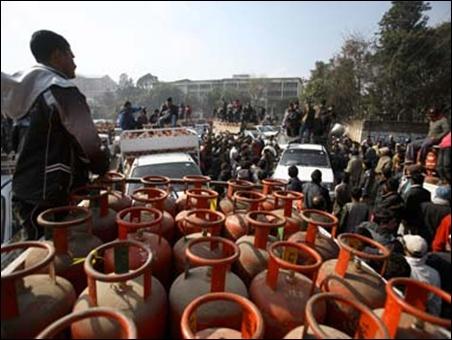
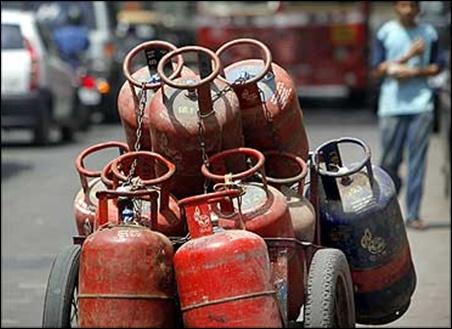
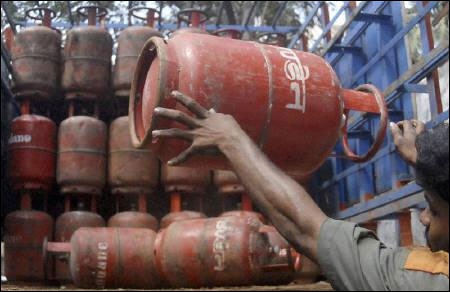
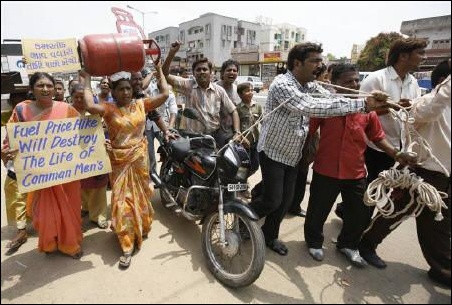
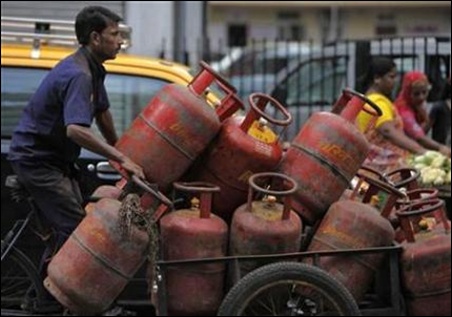
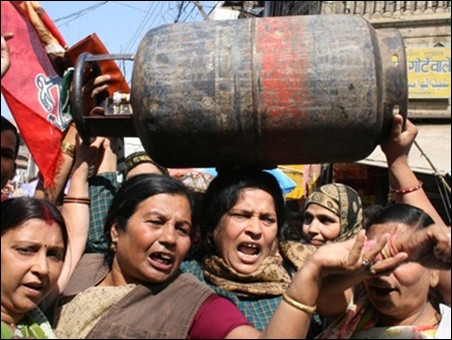
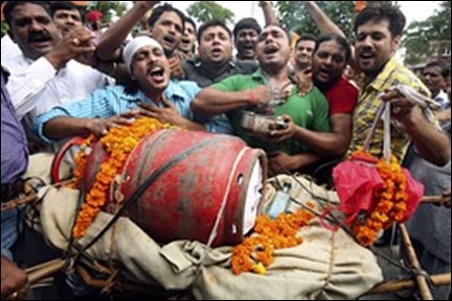
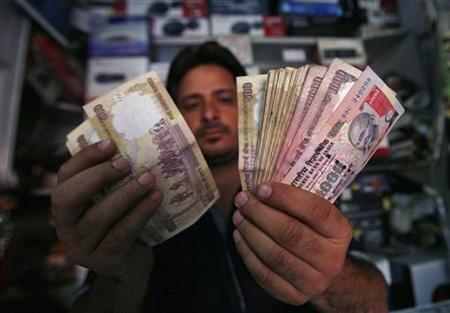
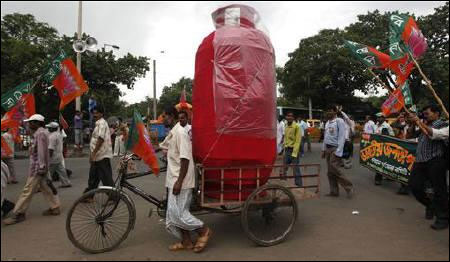
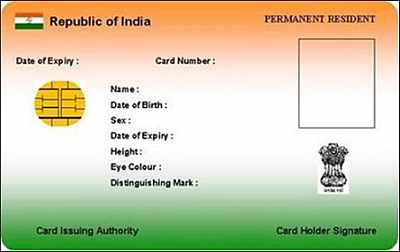

article